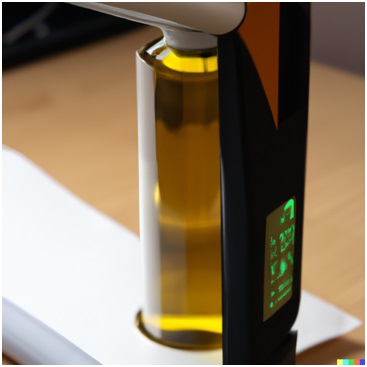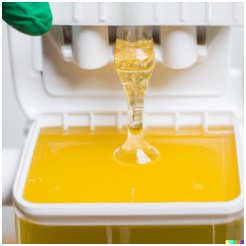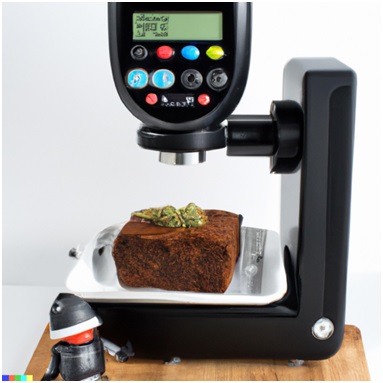PAT will become increasingly important in the cannabis product formulation industry due to the need for consistent and high-quality products. As we have discussed previously, Process analytical technology incorporates technology, techniques, and systems that can be used for real-time monitoring, control, and optimization of the manufacturing process. This month we will explore how PAT will transform the cannabis product formulation industry, specifically in vape pen formulation, terpene purification, and edible dose monitoring.
Vape Pen Formulation
Vape pens have become a popular method of cannabis consumption due to their convenience, ease of use, and discreteness. The formulation of vape pens requires precise control of the amount of cannabis oil, carrier oil, and terpenes to ensure consistent dosing and flavor profile. PAT can be used to monitor the entire vape pen formulation process, from mixing the ingredients to filling the cartridges. In the mixing stage, near-infrared (NIR) spectroscopy can measure the concentration of cannabinoids, carrier oil, and terpenes in real time. This allows for adjustments to the formulation on the fly to ensure that the final product meets the desired specifications.

Once the mixture is complete, the filling process can be monitored using machine vision technology. Machine vision technology can monitor the filling process, ensuring that each cartridge is filled to the correct level and that there are no leaks or defects.
Additionally, ultraviolet-visible (UV-Vis) spectroscopy can be used to monitor the color of the mixture, which is an indicator of the quality of the product. This ensures that the final product is of high quality and that there is no waste.
Terpene Purification
Terpenes are a critical component of cannabis products as they contribute to the flavor and aroma of the final product. However, terpenes can be challenging to purify, as they are typically present in low concentrations and can be easily degraded. PAT can monitor the terpene purification process, ensuring that the terpenes are of high quality and purity. Gas chromatography (G.C.) can be used to analyze the terpene profile of the initial cannabis extract.

This information can then be used to develop a purification process to isolate the desired terpenes. During the purification process, NIR spectroscopy can monitor the concentration of the terpenes in real time, ensuring that they are not degraded during the purification process. This ensures that the final product has a consistent and high-quality terpene profile.
Edible Dose Monitoring
Terpenes are a critical component of cannabis products as they contribute to the flavor and aroma of the final product. However, terpenes can be challenging to purify, as they are typically present in low concentrations and can be easily degraded. PAT can monitor the terpene purification process, ensuring that the terpenes are of high quality and purity. Gas chromatography (GC) can be used to analyze the terpene profile of the initial cannabis extract. This information can then be used to develop a purification process to isolate the desired terpenes.

Editors’ Note: This is an excerpt from our Monthly Playbook. If you would like to read the full monthly playbook and join the thousands of others you can sign up below.


